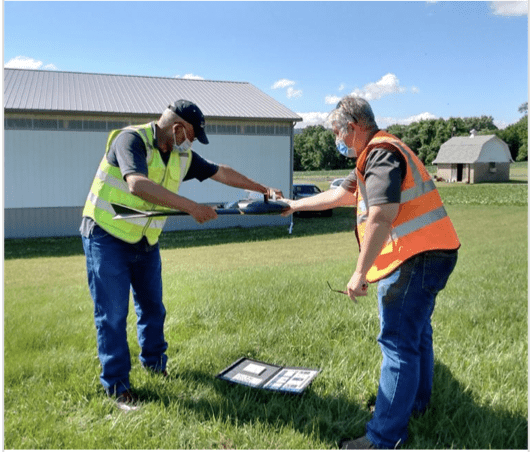Congressman Kean Advocates for Federal Funding to Boost WCCC’s Innovative Programs
Warren County Community College (WCCC) hopes to receive nearly $980,000 in federal funds to support advanced training in robotics and artificial intelligence (AI) for agricultural and food processing industries. Congressman Tom Kean Jr. is advocating for the funding, which will help further develop the college’s WarrenUAS program. The funding proposal is part of the fiscal year 2025 budget.
WCCC has been actively involved in integrating technology and agriculture through its precision agriculture and drone programs. The federal support is aimed at improving WCCC’s Agricultural Education and Training Center to enhance educational opportunities for students in these fields.
Boosting Local Agriculture with Technology
Rep. Kean expressed his enthusiasm for the initiative: “I’m pleased to support a project such as this that builds development of efficient new approaches for our farmers while offering the latest educational opportunities at Warren County Community College for county residents, all while stimulating technological advancement that can benefit various sectors in the region.”
The WarrenUAS program at WCCC, known for its work in precision agriculture and drone training, has been a leader in combining agriculture and technology. The new funding will help expand this program to include robotics and AI, further integrating cutting-edge technologies into food production and processing.
Enhancing Educational Opportunities in Agriculture
WCCC President Dr. Will Austin noted the importance of local partnerships in driving innovation. “We will continue to find new ways to increase yields through artificial intelligence and precision agriculture,” he said. Dr. Austin emphasized the importance of collaboration with local agricultural producers, such as Richard Cotton, to ensure that innovations in technology are effectively applied to real-world agricultural challenges.
Cotton, a local farmer and entrepreneur, highlighted the shift in interest among younger generations towards technology-driven agriculture. He pointed out that technological advances in food production are creating exciting new career opportunities in the agricultural sector, which has often struggled to attract young professionals.
Developing the Future of Food Processing
In addition to the robotics and AI training, WCCC is also developing a new automated food-processing science program. This initiative aims to give students hands-on experience in the latest food production techniques, linking the precision agriculture program to broader food processing and distribution practices.
Dr. Austin emphasized the importance of offering students the latest tools to succeed in both agriculture and food production. “We have built a structure where cutting-edge research in precision agriculture can take place,” he said, adding that the program is designed to help students develop real-world skills that can be applied in both farming and food science.
Supporting Workforce Readiness
After visiting the WarrenUAS facilities, Rep. Kean acknowledged the value of hands-on experience in preparing students for the workforce. “This funding would provide students with the necessary resources and training in vocational agriculture and culinary studies, helping to foster skill development and workforce readiness in these fields,” he said.
The funds will also support the development of a new food processing facility, which Cotton hopes to begin constructing in 2025. The facility is expected to serve as both a learning center for students and a hub for innovation in food processing, with a planned completion date of 2027.
A Bright Future for Precision Agriculture
Richard Cotton expressed optimism for the future of agriculture in Warren County, noting that new technology offers opportunities for more sustainable and efficient farming practices. He believes that these innovations will attract young people to the agricultural industry, helping to preserve the area’s farming heritage.
“There is a bright future for the sector in this county and Warren County Community College by partnering to train and support the next generation of farmers and farming,” Cotton said.
By combining cutting-edge technology with hands-on training, WCCC and its WarrenUAS program are positioning themselves at the forefront of agricultural innovation. This federal support is a significant step in helping the region’s farmers and students embrace the future of food production.


